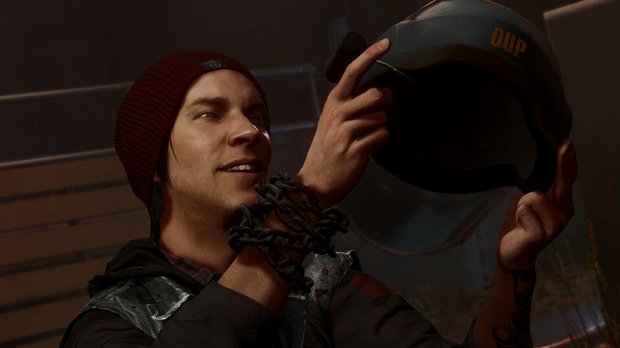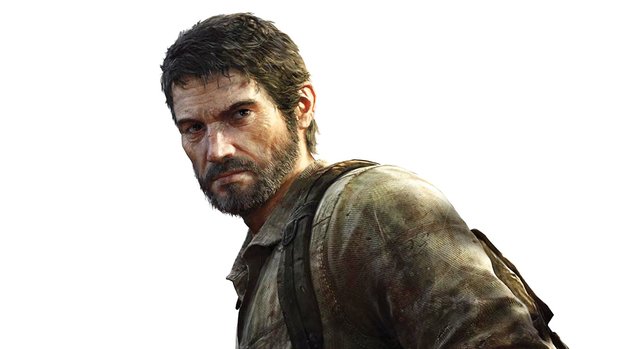My Favourite Game: Troy Baker
Troy Baker is fast becoming one of the most recognisable actors in games, with a list of roles that includes Joel from The Last of Us, Infamous: Second Son’s Delsin Rowe, and now Nathan Drake’s older brother, Sam, in Uncharted 4. Despite his success, Baker didn’t plan to have a career in games. He has worked in film, TV and anime, and once had his sights set on rock’n’roll stardom.

Have you always been into games?
It’s a little bit of a fairytale story, because six or seven years ago when I first moved to LA and played Uncharted, there’s not one bit of me that thought I would be in the game, much less playing the older brother to Nate Drake. I don’t know if you’re a fan of Deadwood, but there’s a wonderful line in it that says the best way to hear God laugh is to announce your plans. And this is not at all where I thought life was going to take me. To begin with, I knew without a shadow of a doubt that I was going to be on the cover of Rolling Stone [laughs].
Do you find acting in games makes it easier to inhabit a character than in film or TV, or is there no difference?
I think the performances should be the same; it’s the presentation that changes. I can age 20 years in a game and be not only this caring father but also a brutal, devastating man. That really comes down to how it’s a team effort. And I want it to stay that way, because there are dozens, if not hundreds, of hands that every character and every frame of that story will pass through before it comes to [the player]. It’s never going to be, ‘Starring Troy Baker.’ That’s just not where games are. Because I’m nothing, absolutely nothing, without the scores of people who are behind me.

What do you think about the general quality of writing in games?
I think there’s a connection that hasn’t been made with it. There’s a desired effect, and there’s a lot of emulating, but not a lot of innovating that happens – especially within story. People watch, say, Black Mirror and they think, ‘Oh, we’ve got to have a scene where a guy fucks a pig,’ because it hit them in the gut. They want to convey that feeling, but they don’t break it down to why it hit them in the gut. So what you end up getting is a derivative of what they originally felt [watching it]. Every developer wants to have the best level designer and the best background artist, but then a lot of times when it comes to telling the story or crafting it, they go, “Well, you know how to tell a story…” and hand it off to someone internally, who could be completely capable, but isn’t necessarily given the tools they need to achieve the desired result. I can’t tell you the hours that Neil [Druckmann] put into being the best writer he could be. He took acting, writing and directing classes. He did the due diligence, and poured his heart into that game. So that’s why I love The Last of Us, because it cost everybody something. And they gave it willingly; they were just bloodletting by the end.
Sign up to the GamesRadar+ Newsletter
Weekly digests, tales from the communities you love, and more
How did you discover games?
I remember the first time my dad brought home an Intellivision, and playing Pong in my living room. I remember the first time I ever saw Pac-Man being wheeled into the supermarket and going, “What is that?” I remember playing Centipede and getting blisters on my finger… But what’s interesting to me, more than the technology change, more than developers and publishers like THQ rising up one minute and then shutting their doors the next, [is that] I’ve seen gamers evolve. I’ve seen a culture and a community of people come together to form this contingent of the entertainment industry, this contingent of society.

Which game would you pick as your favourite?
The nature of this question is why I love playing games, because you can’t choose. There’s a lot. I love Zuma. It’s a stupid iPad game, but I can turn my brain off and the only nemesis I have is myself, because I just want to see how high a score I can get. And then there’s Shadow of the Colossus, which was so groundbreaking in the way that it told its story, the way that it played and how beautiful it looked. But I’m going to have to go with – and sorry, I know you’re going to have fun with this – The Last of Us. I’ve played through it three times, and there’s still stuff I’m discovering. I want to go through every room and building and explore, because every part of it tells a story. I could spend the rest of my life exploring that game.
Read more from Edge here. Or take advantage of our subscription offers for print and digital editions.
Edge magazine was launched in 1993 with a mission to dig deep into the inner workings of the international videogame industry, quickly building a reputation for next-level analysis, features, interviews and reviews that holds fast nearly 30 years on.



